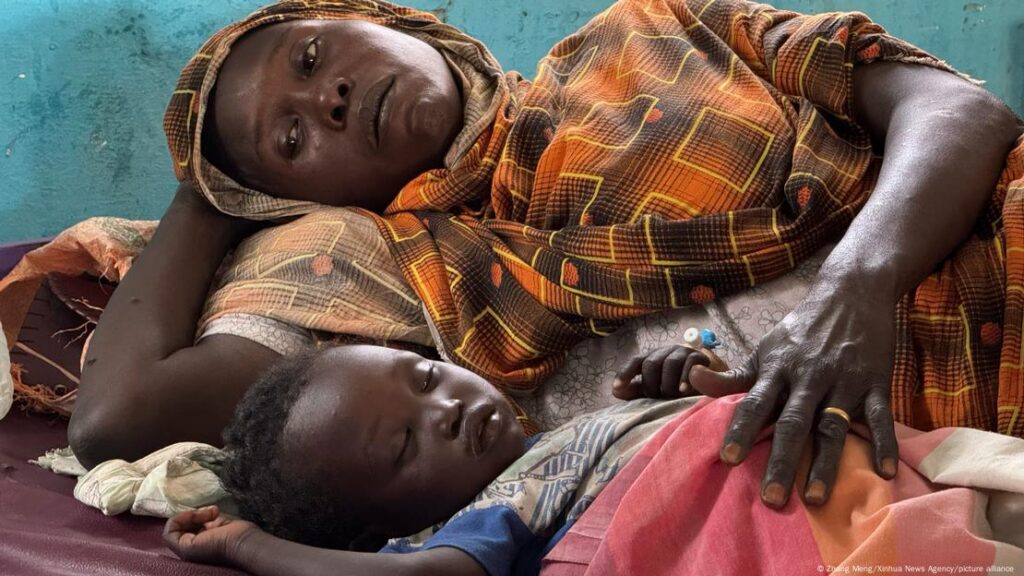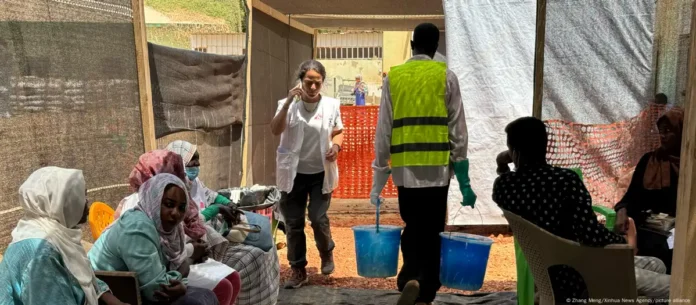Khartoum, May 29, 2025 (SUNA) – The Ministry of Health in Khartoum State announced today, Thursday, the registration of 942 new cholera cases and 25 deaths on Wednesday, following the recording of 1,177 cases and 45 deaths on Tuesday.
In its daily epidemiological report, as cited by the Sudan News Agency (SUNA), the Khartoum State Ministry of Health stated that the recovery rate among cholera patients in isolation centers has reached 89%. The ministry warned that deteriorating environmental conditions are leading to an increase in infections.
The Sudanese Ministry of Health also reported 172 deaths during the week ending Tuesday, 90% of which occurred in Khartoum State.
Since August 2024, health authorities have recorded more than 65,000 cases and over 1,700 deaths in 12 out of Sudan’s 18 states.
Khartoum State alone has recorded more than 7,700 cases, including over 1,000 cases among children under five, and 185 deaths since January.
The surge in cholera cases followed weeks of drone strikes attributed to the Rapid Support Forces (RSF), which resulted in water and electricity outages across the capital.
 Hundreds Dead, Thousands Infected in Sudan’s Cholera Outbreak
Hundreds Dead, Thousands Infected in Sudan’s Cholera Outbreak
Photo: Zhang Meng/Xinhua News Agency/picture alliance
Health and Sanitation Infrastructure Damaged by Conflict
Greater Khartoum has witnessed fighting for most of the past two years during the war between the army and the Rapid Support Forces. Last week, the army-backed government led by Abdel Fattah al-Burhan announced it had expelled the RSF from its last positions in Khartoum State, two months after retaking the city center. The city has suffered extensive damage, and health and sanitation infrastructure is barely functioning.
According to the doctors’ syndicate, about 90% of the country’s hospitals were forced to close at some point due to the fighting. Health facilities have been regularly stormed, shelled, and looted.
The cholera outbreak has further strained the healthcare system.
War in Sudan: No End in Sight and an Imminent Humanitarian Catastrophe
On Thursday, Stéphane Dujarric, spokesperson for UN Secretary-General António Guterres, said that cholera vaccination had begun in Jebel Aulia, the worst-affected area in Khartoum.
Dujarric added, “The World Health Organization has delivered more than 22 tons of cholera response and emergency health supplies in support of local efforts.”
The Office for the Coordination of Humanitarian Affairs noted “significant discrepancies” in official data, making it difficult to assess the true scale of the outbreak.
Cholera is endemic in Sudan but has been spreading far more severely and frequently since the war began.
“Sudan on the Brink of a Comprehensive Public Health Disaster”
Attiaaz Youssef, Director of the International Rescue Committee in Sudan, said, “Sudan is on the brink of a comprehensive public health disaster.”
She added, “A combination of conflict, displacement, destruction of vital infrastructure, and limited access to clean water is fueling the resurgence of cholera and other deadly diseases.”
The war, now in its third year between the army and the RSF, has killed tens of thousands and displaced 13 million people, causing the world’s largest displacement and hunger crisis.
At least three million people have been displaced from Khartoum State alone, but more than 34,000 have returned since the army regained control in recent months, according to UN figures.
Most returnees found their homes destroyed by the fighting, with no access to clean water or basic services.
According to UNICEF, more than one million children are at risk in areas of Khartoum where cholera outbreaks have been recorded.
Source: Deutsche Welle


